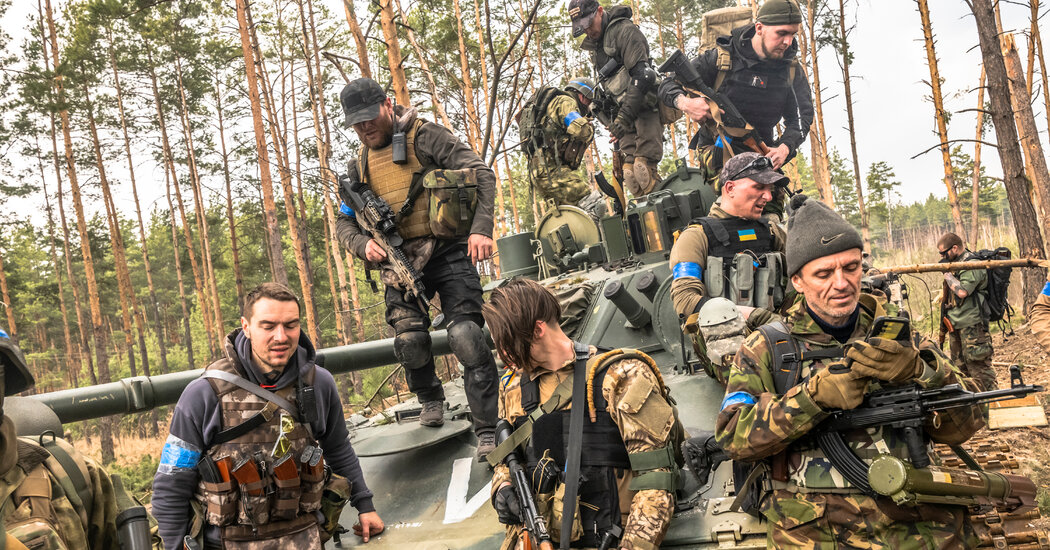
The rocky course of the war in Ukraine thus far has vindicated Mr. Putin’s diagnosis, if not his conduct. Though Ukraine’s military industry was important in Soviet times, by 2014 the country barely had a modern military at all. Oligarchs, not the state, armed and funded some of the militias sent to fight Russian-supported separatists in the east. The United States started arming and training Ukraine’s military, hesitantly at first under President Barack Obama. Modern hardware began flowing during the Trump administration, though, and today the country is armed to the teeth.
Since 2018, Ukraine has received U.S.-built Javelin antitank missiles, Czech artillery and Turkish Bayraktar drones and other NATO-interoperable weaponry. The United States and Canada have lately sent up-to-date British-designed M777 howitzers that fire GPS-guided Excalibur shells. President Biden just signed into law a $40 billion military aid package.
In this light, mockery of Russia’s battlefield performance is misplaced. Russia is not being stymied by a plucky agricultural country a third its size; it is holding its own, at least for now, against NATO’s advanced economic, cyber and battlefield weapons.
And this is where Mr. Guaino is correct to accuse the West of sleepwalking. The United States is trying to maintain the fiction that arming one’s allies is not the same thing as participating in combat.
In the information age, this distinction is growing more and more artificial. The United States has provided intelligence used to kill Russian generals. It obtained targeting information that helped to sink the Russian Black Sea missile cruiser the Moskva, an incident in which about 40 seamen were killed.
And the United States may be playing an even more direct role. There are thousands of foreign fighters in Ukraine. One volunteer spoke to the Canadian Broadcasting Corporation this month of fighting alongside “friends” who “come from the Marines, from the States.” Just as it is easy to cross the line between being a weapons supplier and being a combatant, it is easy to cross the line from waging a proxy war to waging a secret war.
In a subtler way, a country trying to fight such a war risks being drawn from partial into full involvement by force of moral reasoning. Perhaps American officials justify exporting weaponry the way they justify budgeting it: It is so powerful that it is dissuasive. The money is well spent because it buys peace. Should bigger guns fail to dissuade, however, they lead to bigger wars.




